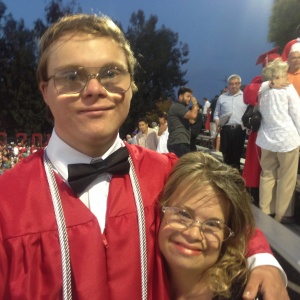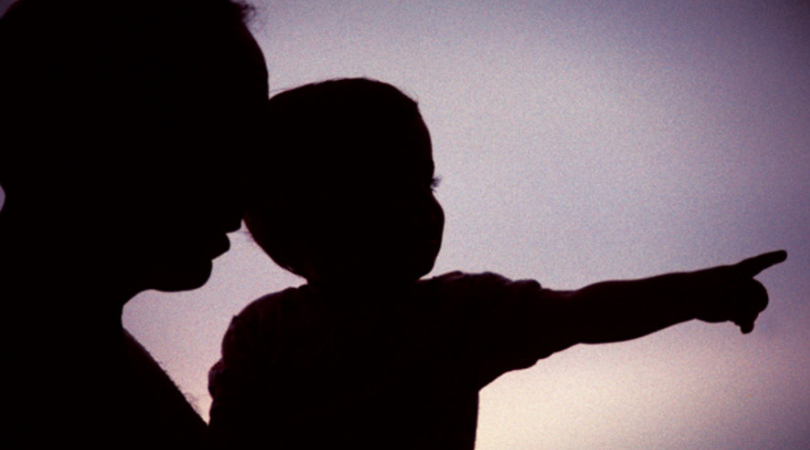Has your son who’s 5’ 4” (or shorter) told you that he’s going to be an NBA player? Has your beautiful daughter who has weak ankles and knees spoken to you about her dream of becoming a prima ballerina? Does your son who has absolutely NO rhythm and can’t carry a tune in a bucket proclaimed himself to be a bona fide rock star?
That last one is mine. My son has identified himself as a rock star since he was a toddler. I’ve decided to go along with the dream even though I cringe a little every time he sings. That’s what moms are for – to help their children do whatever it takes, within reason, to achieve their goals. He’s also demanded at different times that he’s going to be president, the King of bowling, and a WWE superstar. I agree enough to give him self-confidence but we both know none of those things are likely to happen.
It’s one thing when the dreams children dream aren’t feasible because their bodies just aren’t built that way. Not everyone can be a professional athlete or leader of the free world. [Not going there but wouldn’t it be nice if someone with Down syndrome ruled the world.]
But what about when the dream is physically possible, but not “socially acceptable?”
As often happens, the stars have aligned to make me face a difficult topic I’d otherwise let disappear into the grey mist of my memory. The place that holds dreams I’ve given up on and hopes for Josh that make us both sad.
We were sitting in our recliners in the living room watching TV (as usual) and someone said, “What kind of father is he?” Josh let it sink in a moment and then turned to me and said, “I can be a father.” I must have had the definition of deer in the headlights look on my face. I couldn’t speak for a few moments. He’s used to me ignoring him at times when we’re engrossed in a show. He usually takes a few seconds to decide whether it’s worth continuing the conversation or not. I seriously hoped he’d let it go and return to the show. No such luck.
“Right?” he said as he stared at me, waiting for an answer.
I choked out “uh huh” without looking at him. My 32-year-old son was wondering if he’d ever be a father. I was completely unprepared and at a loss for words. He let it go at that, thankfully.
But the universe was not done with me.
I’ve set up a Google Scholar alert to send me an email when new research is published with the words Down syndrome in the title. On 5/16 I got this:
Down syndrome and infertility: what support should we provide? E Parizot, R Dard, N Janel, F Vialard - Journal of Assisted Reproduction and Genetics, 2019 Down syndrome (DS) is the most common genetic disease at birth; on average, it affects 1 in 700 newborns. The syndrome features cognitive impairment, susceptibility to certain diseases, and (in some cases) congenital malformations …
Okay… Now that’s a new one. The study appeared in the Journal of Assisted Reproduction and Genetics. It started with the usual, people with Ds are living longer and being more included in society so new areas of research appearing: “Access to procreation is an emerging debate.” The researchers claimed that they wanted to stay away from the controversial ethics, the “should we,” debate and look first at the literature available on fertility and “associated genetic risk.”
Here’s a snapshot of what I got out of the study:
We’ve decided it’s no longer appropriate to sterilize people with intellectual disabilities .
“In the past, sterilization of patients with intellectual disability was the rule; it was assumed that such people were not able to take care of or educate their children, and should not be allowed to risk transmitting their intellectual disability to offspring.”
There’s no test for parenthood in the typical population.
“The true risks for children born to parents with intellectual disabilities have not really been established. Furthermore, there are no cognitive prerequisites for parenthood in the general population or among people seeking to access assisted reproductive technology (ART).”
Fertility is a medical issue in both males and females with Down syndrome but in different ways.
“Only three cases of spontaneous conception in men with DS have been described in the literature.” The low incidence may be from low sperm count or other biologic reasons.”
“Women with Ds are fertile, since many cases of maternity have been reported. However, the literature data have highlighted early menopause in women with Ds (relative to a healthy population) …
“According to the literature data, all the children fathered by a man with DS (with or without ART) have been healthy. In contrast, one out of three children born to a woman with DS themselves have DS.”
If people with Down syndrome want to have children someone else makes the decision about whether they are allowed to or not.
“Conclusion
The literature data suggests that fertility is impaired in people with DS. Nevertheless, some people with DS have become parents, and others are seeking to have children. A case-by-case evaluation appears to be necessary, in order to assess (i) the person’s ability to care for and educate a child and (ii) the rationale for access to ART and/or oocyte donation programs. Such evaluation needs to be multidisciplinary including psychologist and clinics/practitioners willing to undertake these cases. Furthermore, the cost and access to treatment in countries without insurance or that are government funded must be considered; DS may not be able to afford assisted reproduction.”
After reading and trying to digest this study I was even more confused. First, what made these researchers choose this topic? But ultimately, should others have the control over something so personal? And if so, how does one decide?
And the universe persisted…
 While listening to a favorite podcast on TuneIn Radio I decided to search for “Down syndrome.” The podcast “Everybody In” came up. The description said “Faith Vidrine, the co-host of “Everybody In,” experiences Down syndrome.” As I’m listening to the first episode I hear Faith say:
While listening to a favorite podcast on TuneIn Radio I decided to search for “Down syndrome.” The podcast “Everybody In” came up. The description said “Faith Vidrine, the co-host of “Everybody In,” experiences Down syndrome.” As I’m listening to the first episode I hear Faith say:
“You know how women always get pregnant or something. It really feels like I can’t because of my disability. I don’t know why my sisters keeps telling me I can’t have babies. You know. Every time I see those kind of women, you know, it really feels like, why can’t I have a baby you know. They’re just I know they’re a lot to handle, but I can see the other side.”
The three women on the podcast wonder how much the fact that they don’t have children was a choice they made or a product of society and disability.
Then, one of my best friends sent me something she saw on Twitter:
Susan’s Down syndrome meant the symptoms of menopause weren’t picked up.
It was a scary time – but now she’s getting the support she needs.#BBCMenopause #Menopause #Disability #WomensHealth #Downsyndrome pic.twitter.com/2Va7ZTsxqd— BBC Breakfast (@BBCBreakfast) May 18, 2019
Which made me wonder how many adults with Down syndrome understand their own bodies and what resources are available to help people.
And last, but not least, the story of Sadler Issa came across my screen.
https://www.facebook.com/watch/?v=364012057656851
In the article Issa talks about his relationship with his father:
“When his father introduces him to someone new, Issa said he is full of pride. “It’s like he’s saying: ‘I have Down syndrome, but I raised my son and did everything to help him become a doctor who treats people. I’m proud of him.’”

Oh! Also this week this heartwarming picture of Nic Allen, and his beautiful mother Lisa Newtop, both of whom have Ds, came across my Facebook feed.
So, I’m not sure whether the universe is finished with me on this topic yet, but I figured there was enough here to share. I’m guessing that was the point – to convince me to write about a subject that gets little attention.
Or maybe it was aimed at getting me more prepared to respond to my son the next time he brings up this topic.
Either way, I’m not sure I’m comfortable with the common thread of all these stories – that adults with Down syndrome rarely, if ever, gets to decide whether or not they want to become parents.
Can we talk?


Lots of good info here. Sorry no answers are immediate.